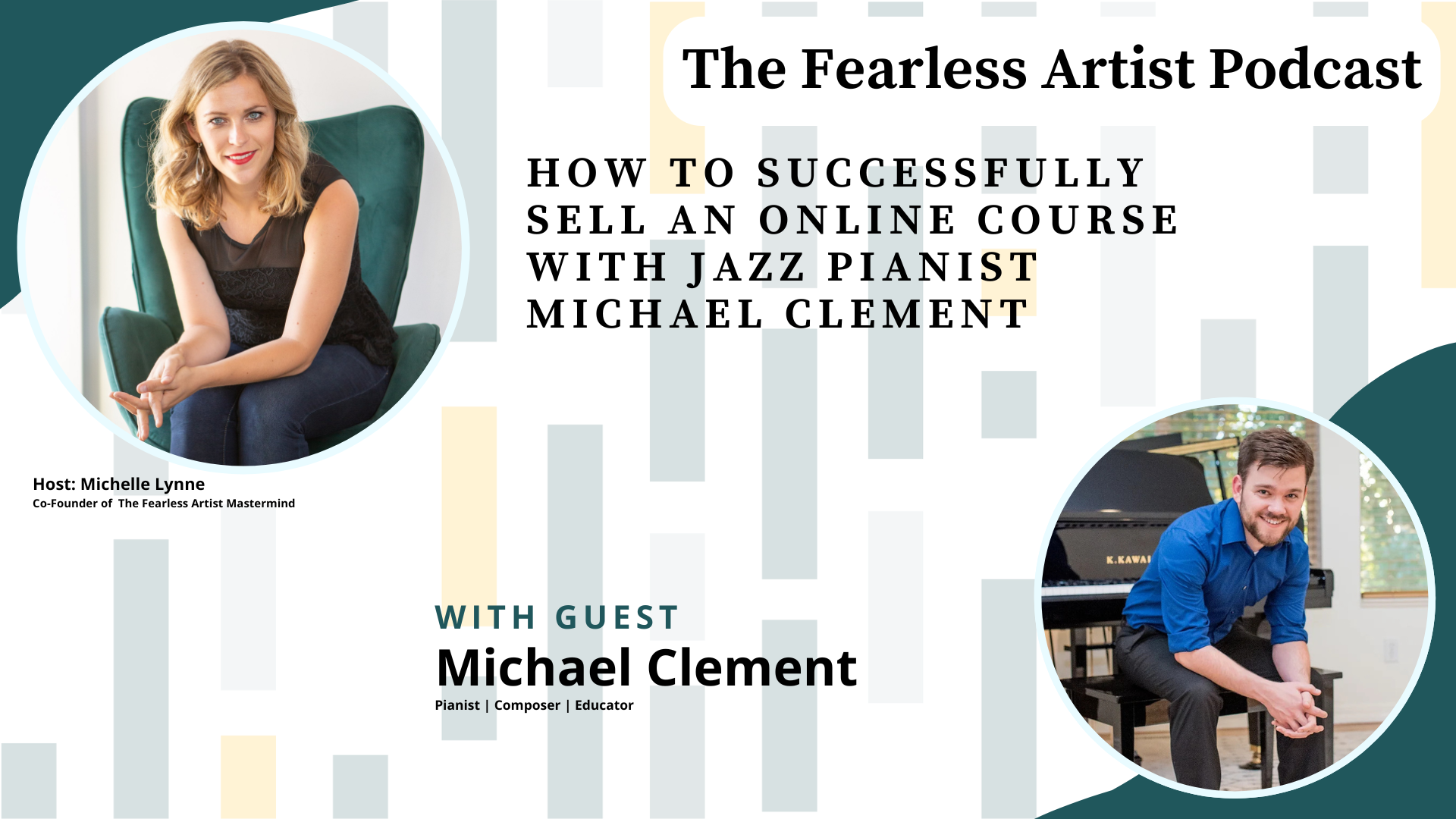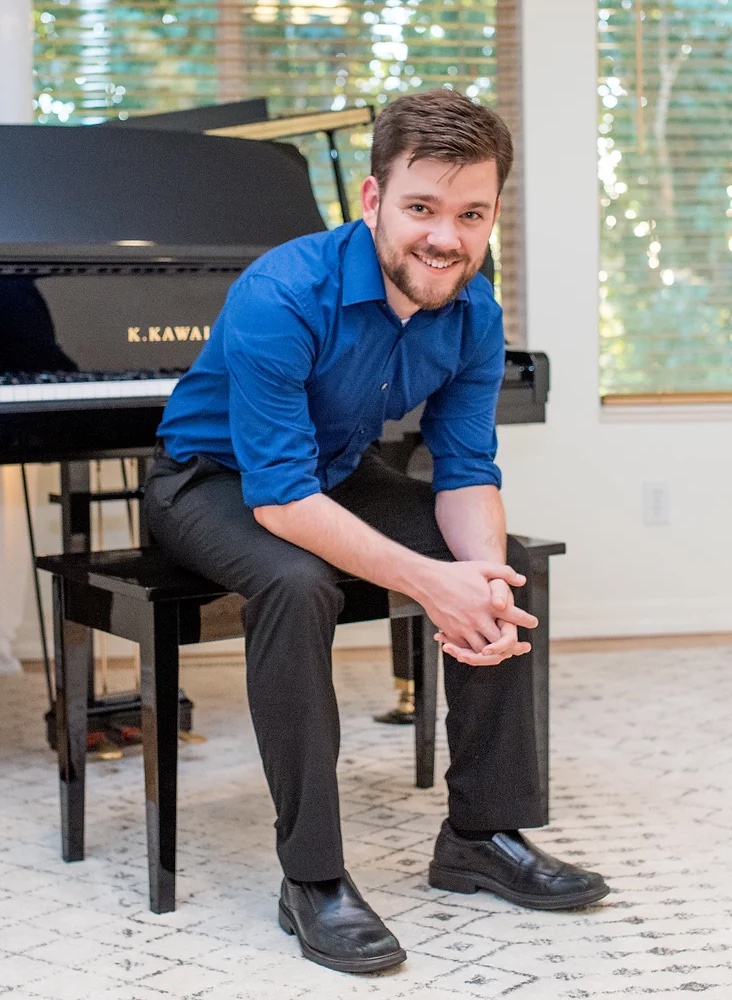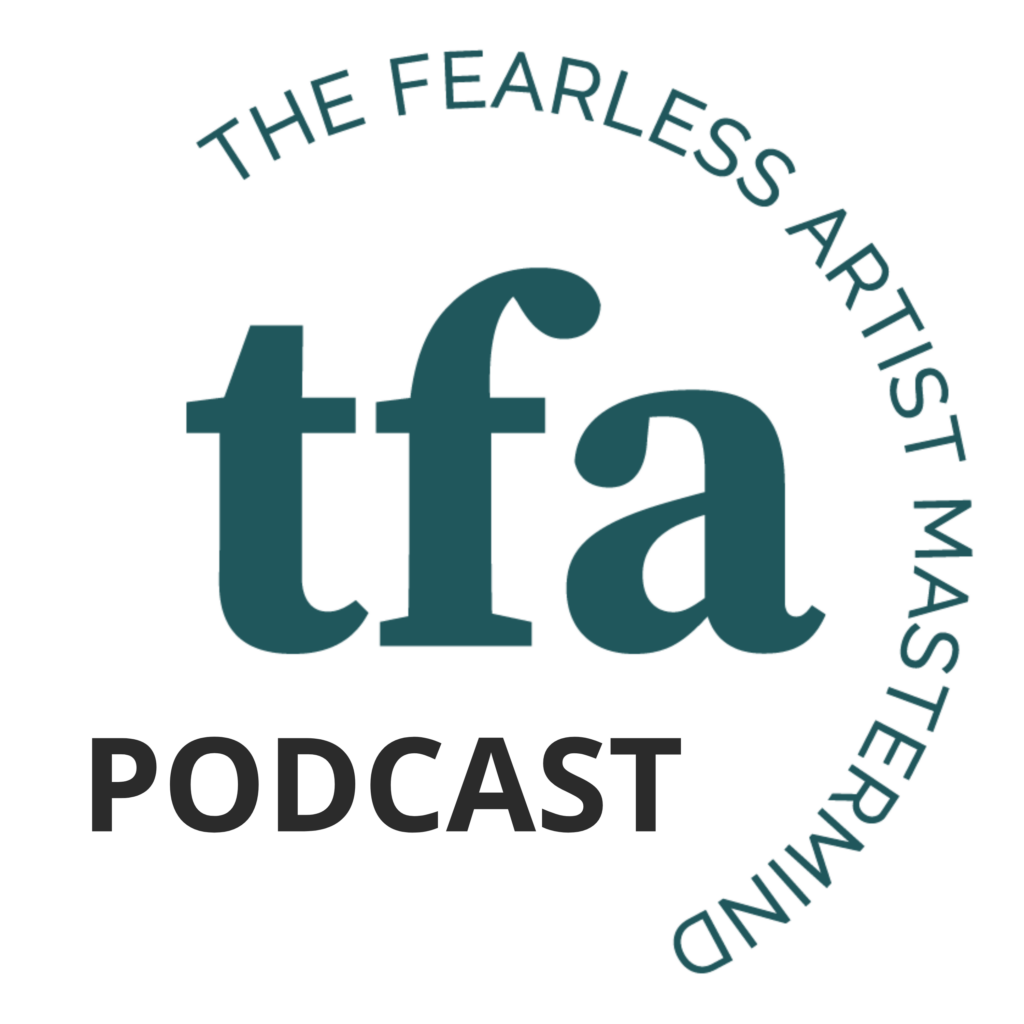How to successfully sell an online course with jazz pianist Michael Clement

Guest:
Michael Clement
Pianist | Composer | Educator
Pianist, composer, and educator Michael Clement connects to his listeners through his outstanding versatility and range of musicianship. In addition to being a classical concert and collaborative pianist, he is an award-winning jazz musician and keyboardist, and allows all of his influences to shine through.
Clement is an up-and-coming pianist whose breadth and depth of musicianship has earned him slots in the Boysie Lowery Jazz Residency, Rebecca Penneys Piano Festival, and the American Jazz Pianist Competition. His holistic approach to music and pianism has given him diverse opportunities to perform with the Irving Symphony Orchestra, the Rosana Eckert Quartet, and the seven-time Grammy-nominated University of North Texas One O’Clock Lab Band. His playing is featured on the One O’Clock Band’s most recent release, Lab 2019. During his time at the University of North Texas, he was a finalist in the UNT Concerto competition, and was named the Outstanding Undergraduate Piano Performance Major of the Year in 2018. Additionally, he was a member of the UNT Latin Jazz Lab, the UNT Jazz Singers, and the Two O’Clock Lab Band. Through his membership in these prestigious ensembles, he performed with many guest artists including Melissa Aldana, Sara Gazarek, and Josh Nelson.
Clement finished two undergraduate music degrees in piano performance and jazz studies at UNT in 2018, and he is currently pursuing a masters degree in jazz composition and arranging at the same institution under the tutelage of Dave Meder and Rich DeRosa. His compositions have been performed by the Two O’Clock Lab Band, the U-Tubes (the jazz trombone ensemble), and several UNT jazz combos. He has also taught courses in jazz piano, arranging, and advanced improvisation.
As an educator, Clement focuses on teaching the fundamentals of effortless piano technique, and functional knowledge of form and harmony, including improvisation and composition. In addition to his work at UNT and his regular freelance performances in the DFW area, he owns his own private piano studio. Clement seeks to create musicians first–pianists second.
—
Website –
https://learn.michaelclement.com
https://michaelclementmusic.com
Instagram –
https://www.instagram.com/MichaelClementMusic
—

Subscribe to The Fearless Artist Podcast
Intro/Outro music by Michelle Lynne • Episode produced by phMediaStudio, LLC
